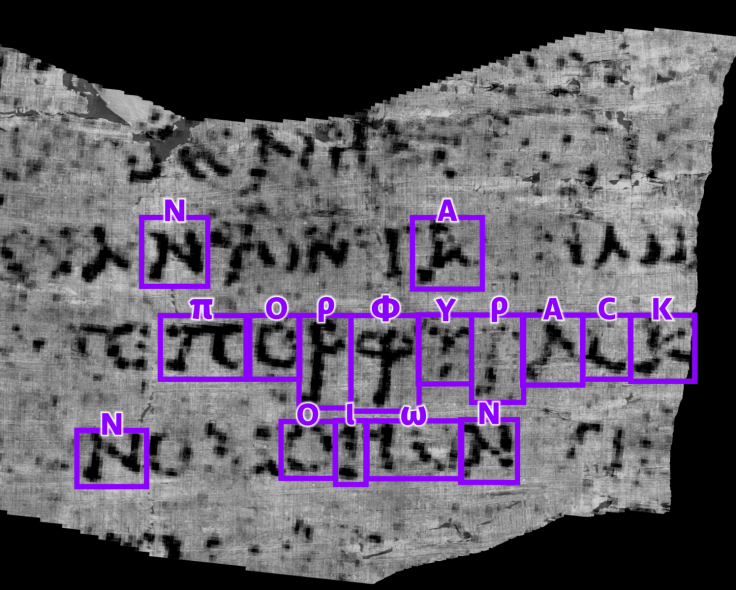A 21-year-old Computer Science student at Nebraska-Lincoln successfully deciphered an ancient Herculaneum scroll using a machine learning model.

Students Receive Reward for Deciphering Scroll
Luke Farritor, the first student to read the first text in the scrolls, was awarded a $40,000 First Letters Prize from the Vesuvius Challenge. According to Farritor, he decided to develop and train his own machine-learning model upon the discovery of the crackle patterns. Upon improving the model, it eventually unveiled the word that refers to "purple dye" which is a rare word in ancient texts.
Meanwhile, Youssef Nader was the second person to decode the letters in the scrolls and was given a $10,000 First Ink prize. Unlike Farritor, Nader focused on ink-detection efforts using a modified version of the machine learning model. He was able to study the detached fragments which unveil an entirely new text for modern scholars. Currently, Nader's model was able to gather four and a half columns of text.
The Vesuvius Challenge is a partnership between private entrepreneurs and academics that hands out rewards for deciphering ancient scrolls. The main prize of $700,000 awaits for the person who will be able to read four or more passages from one of the scrolls before December 31.
The Vesuvius Challenge
It all started with the tech entrepreneurs Nat Friedman and Daniel Gross who both heard of Brent Searles' work on deciphering the Herculaneum scrolls. The challenge's name was derived from the catastrophic 79 AD eruption of Mount Vesuvius which led to the ruins of Herculaneum, Pompeii, and other cities.
Over 600 rolled-up scrolls are so fragile to the point that they can crumble if touched. However, X-ray scanning can help to reveal their contents. Friedman and Gross launched a crowdsourcing challenge last March in order to fast-track the progress of deciphering the scrolls.
It was reported that around 1,500 teams have been collaborating through Discord in order to work around the challenge. The teams also share the winner's code every time they make a milestone.
Related Article : NASA Successfully Collects Asteroid Sample Thanks to OSIRIS-REx Capsule









